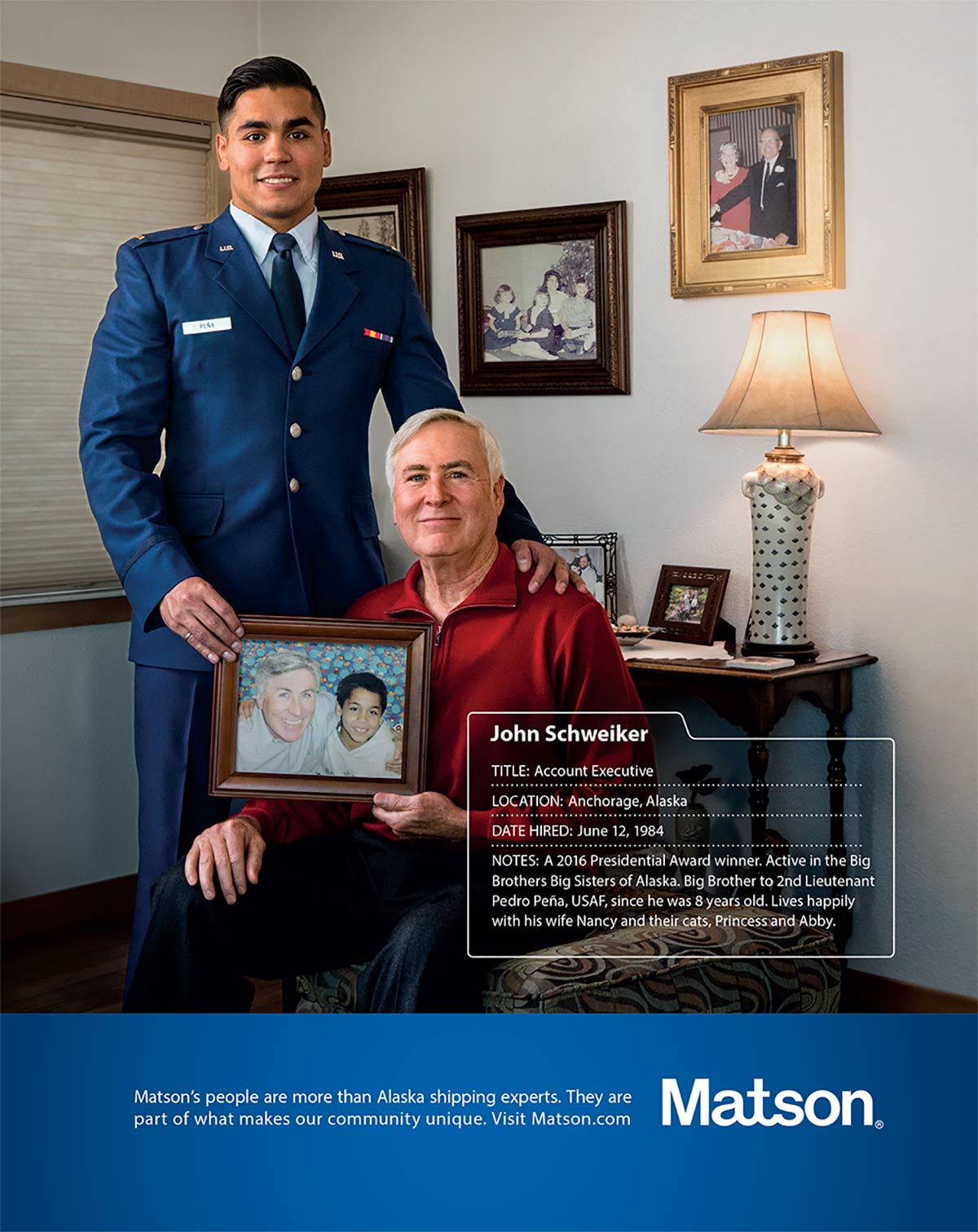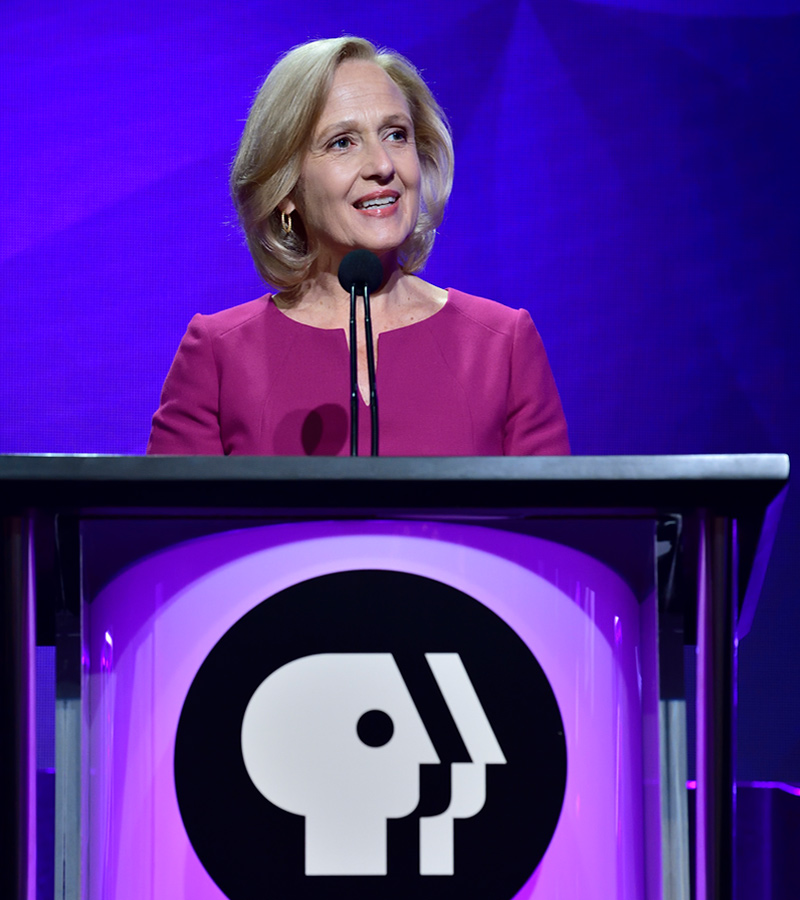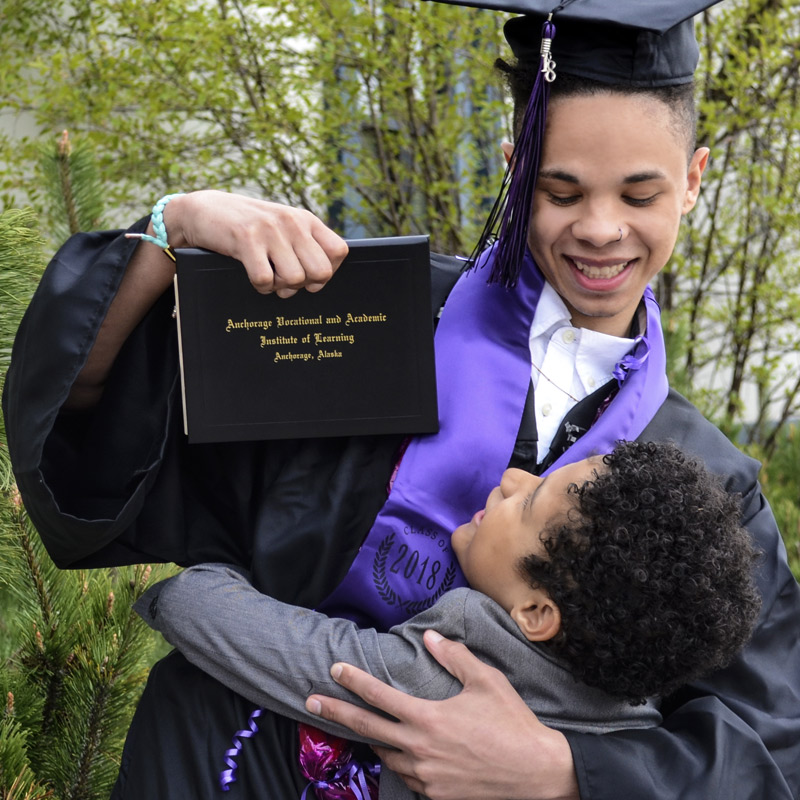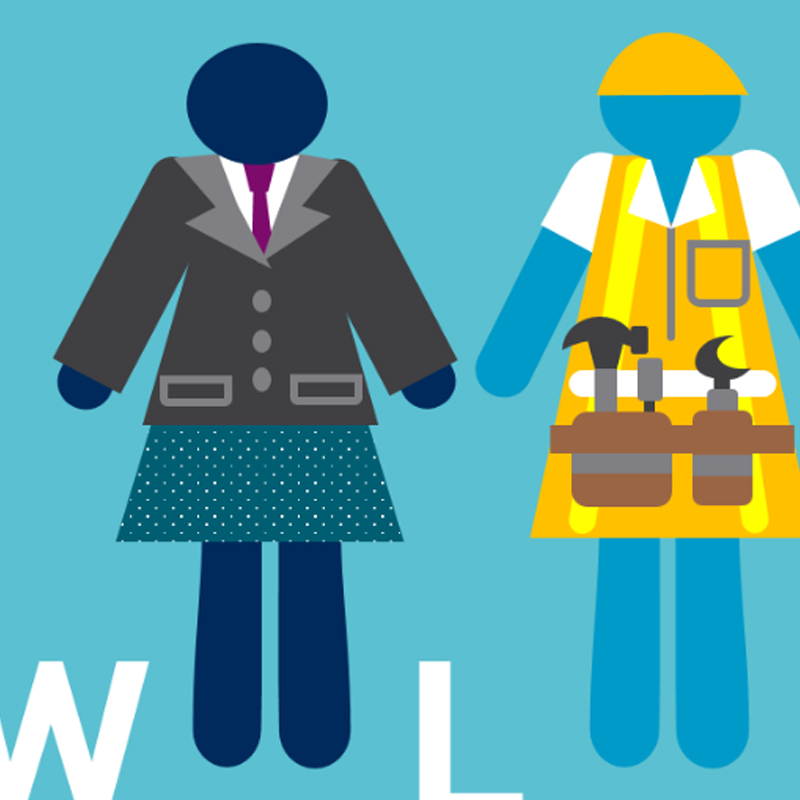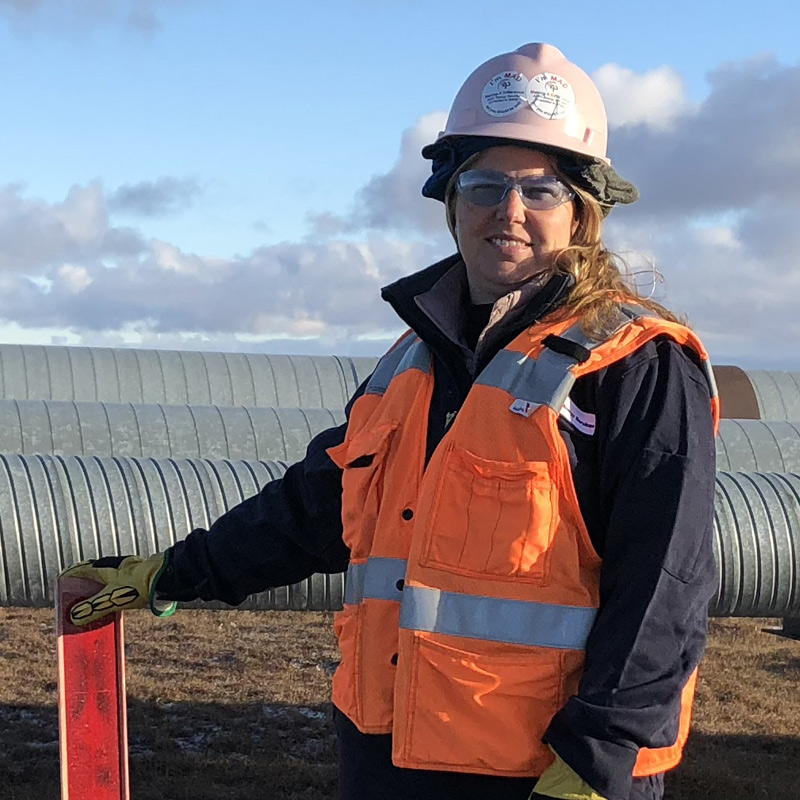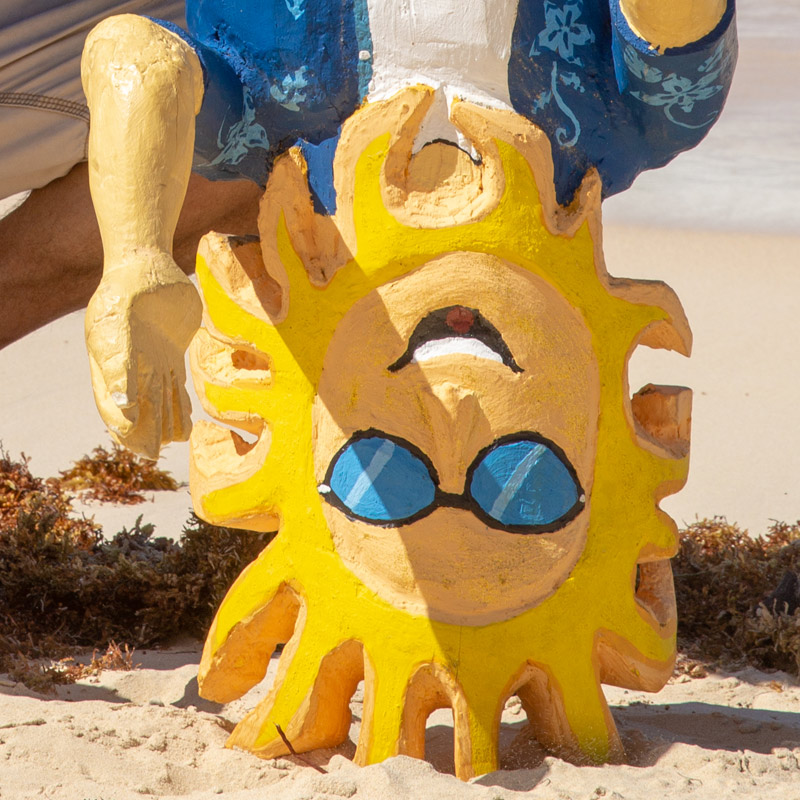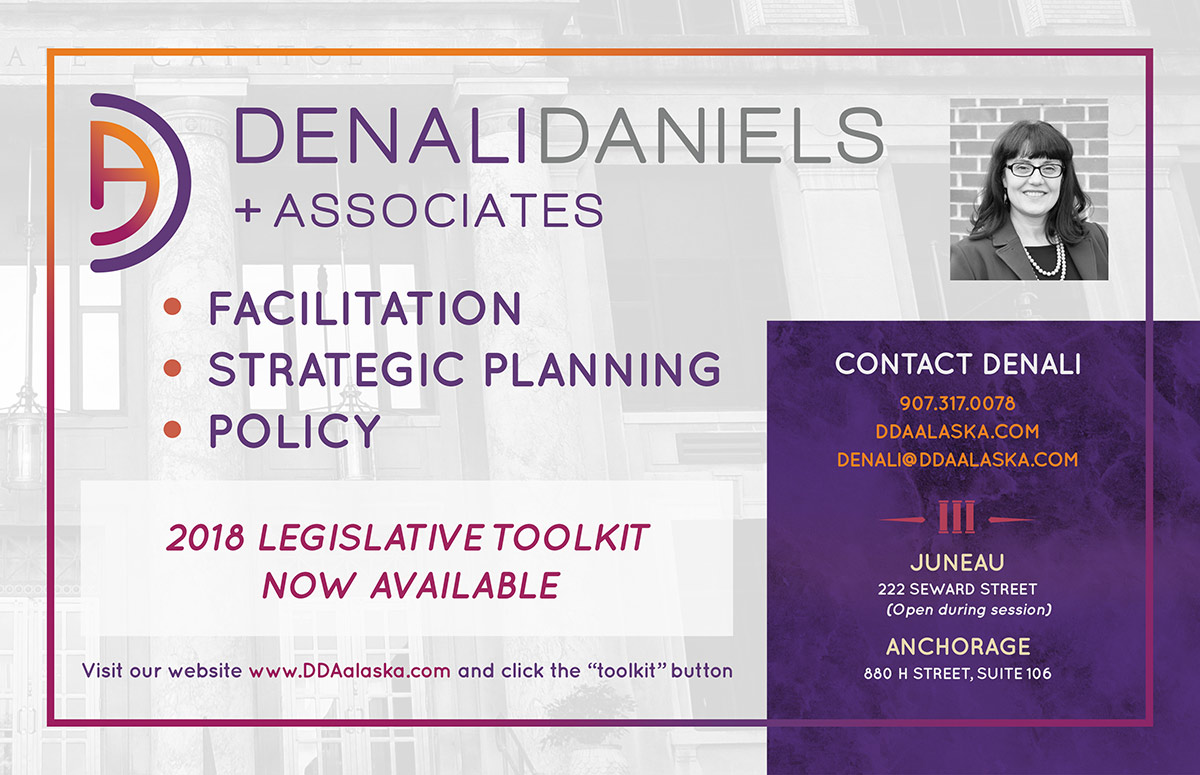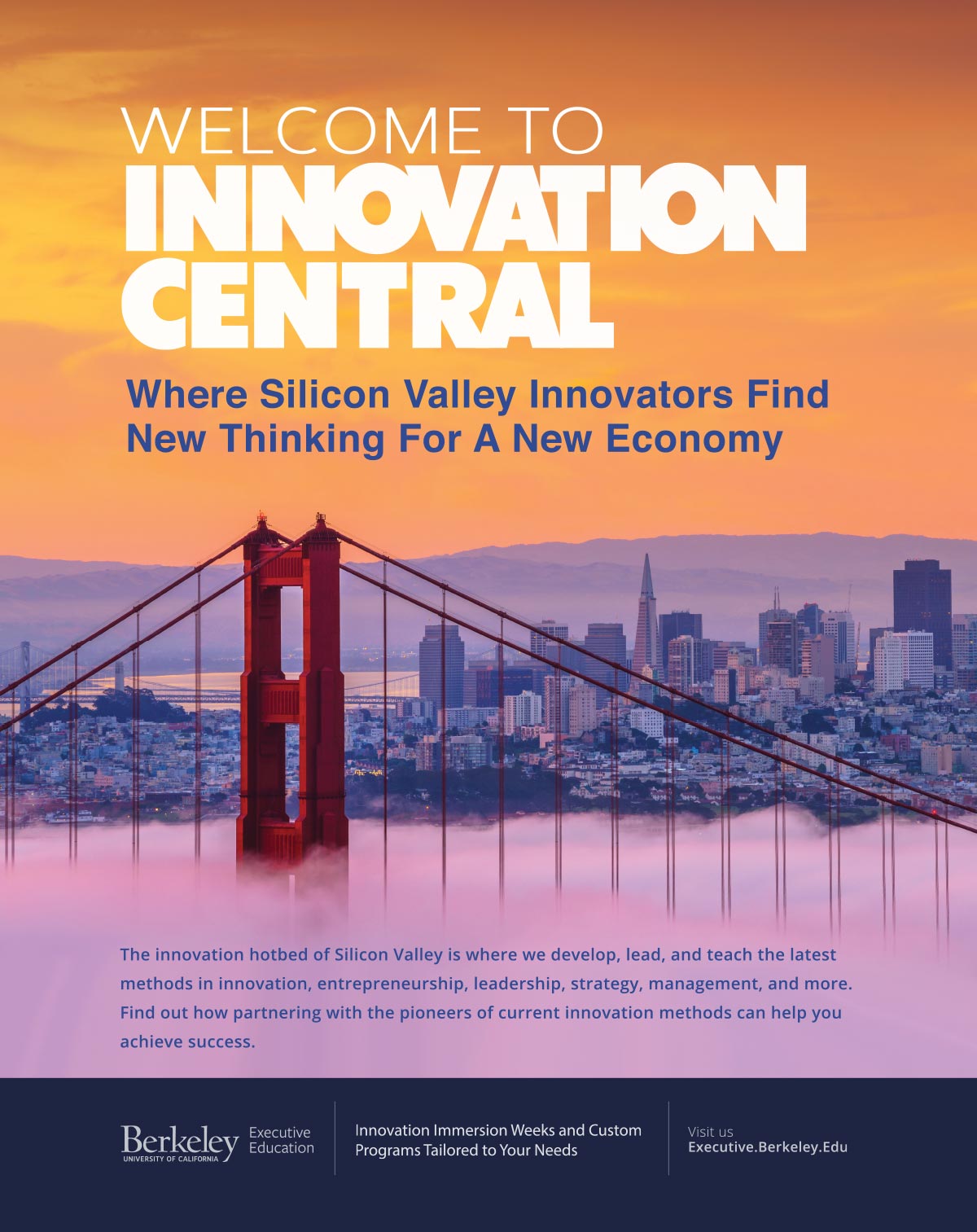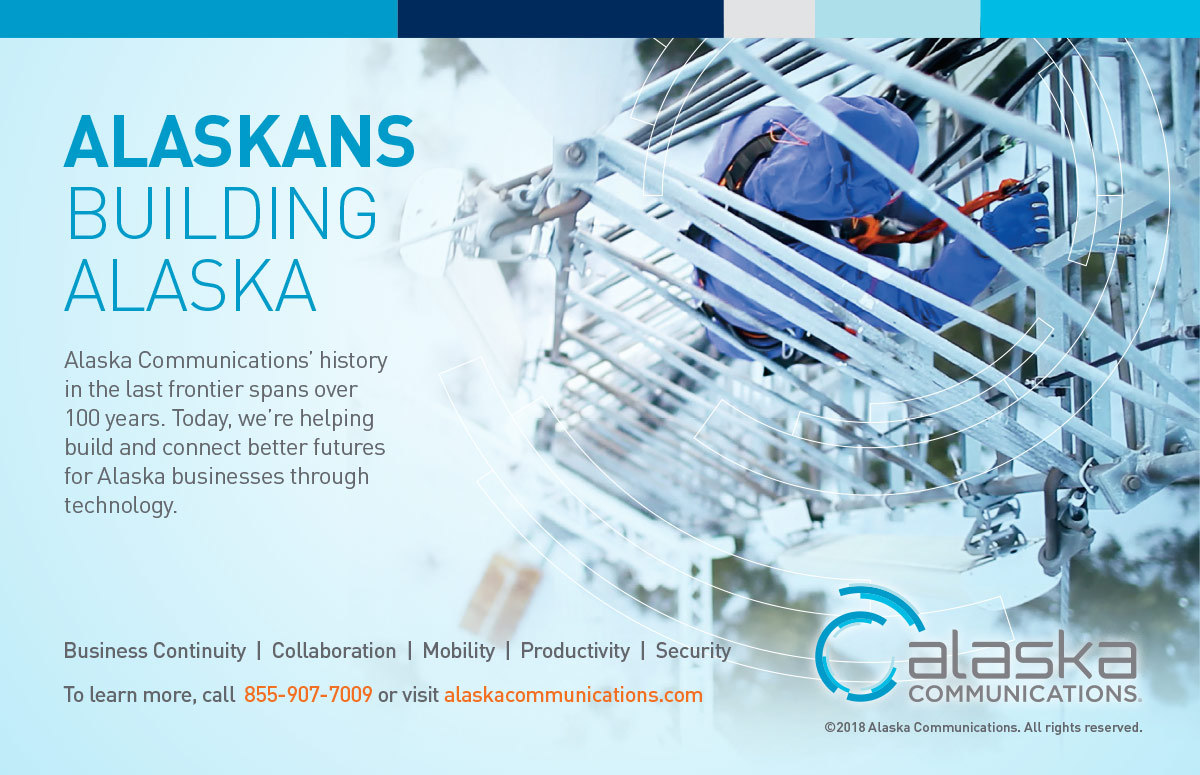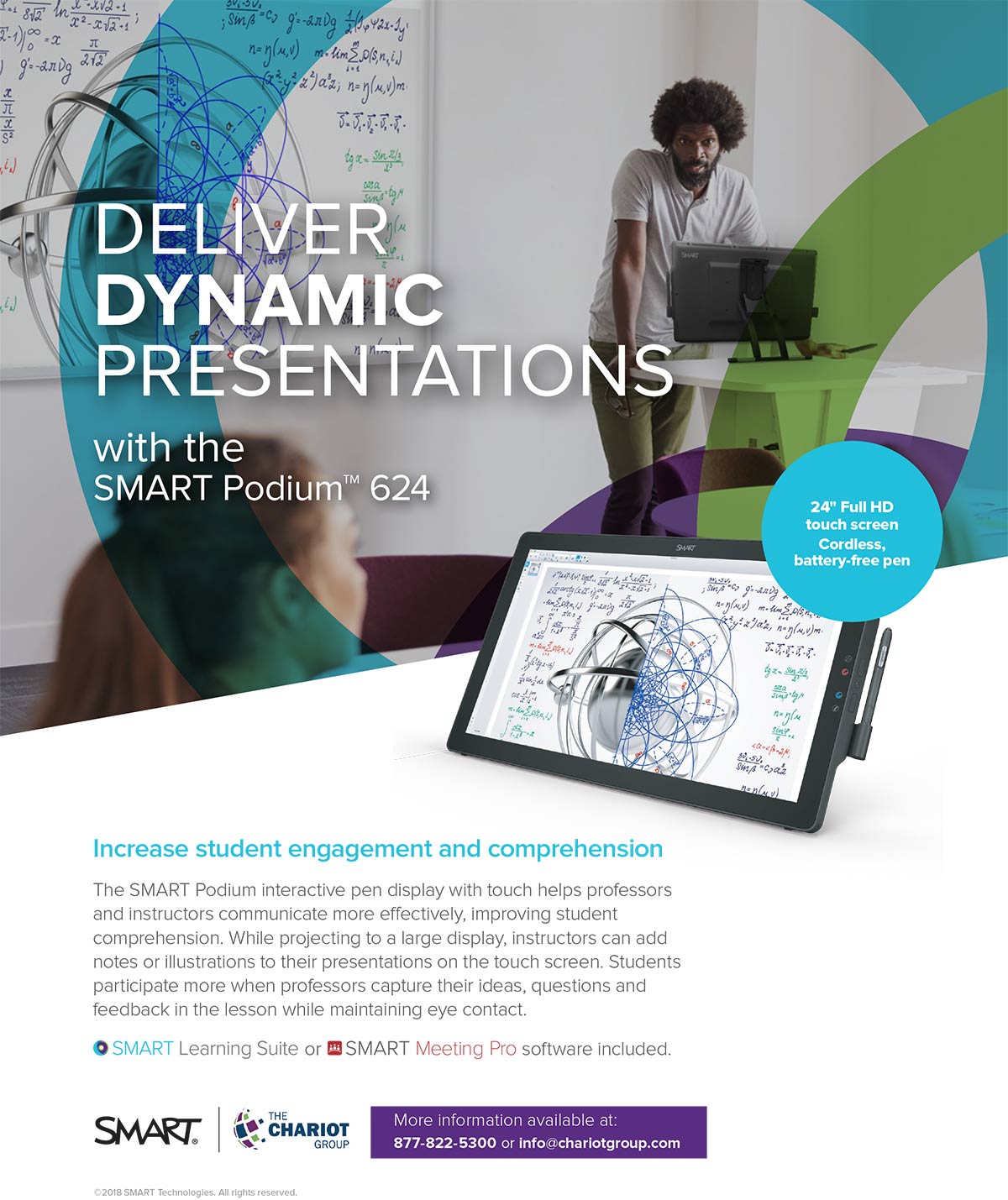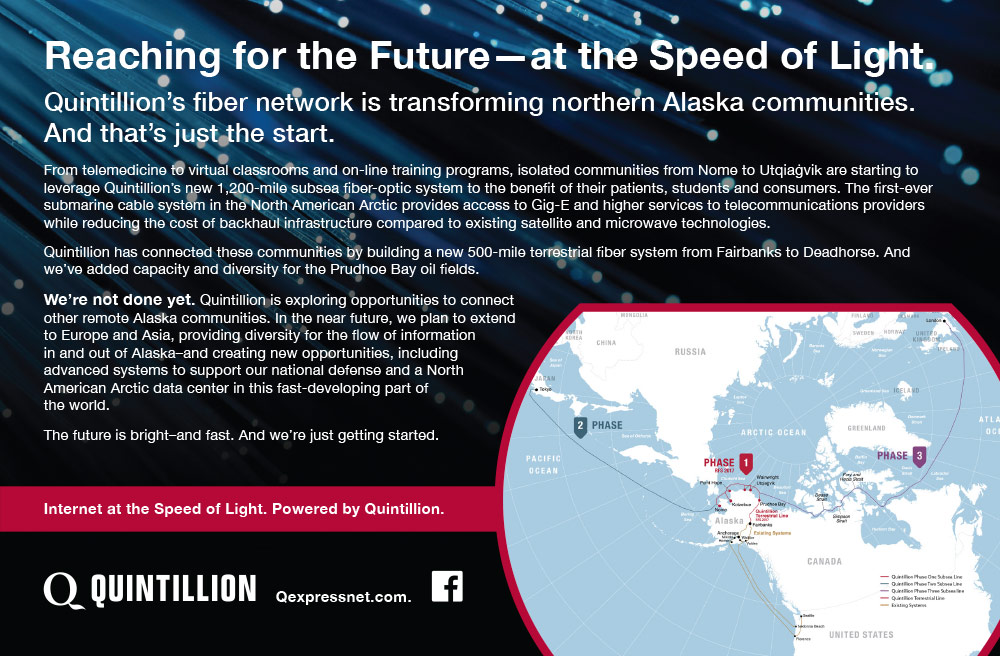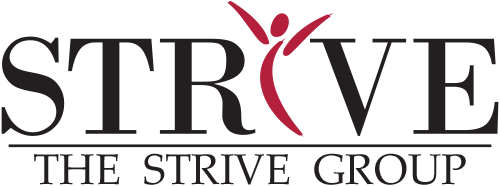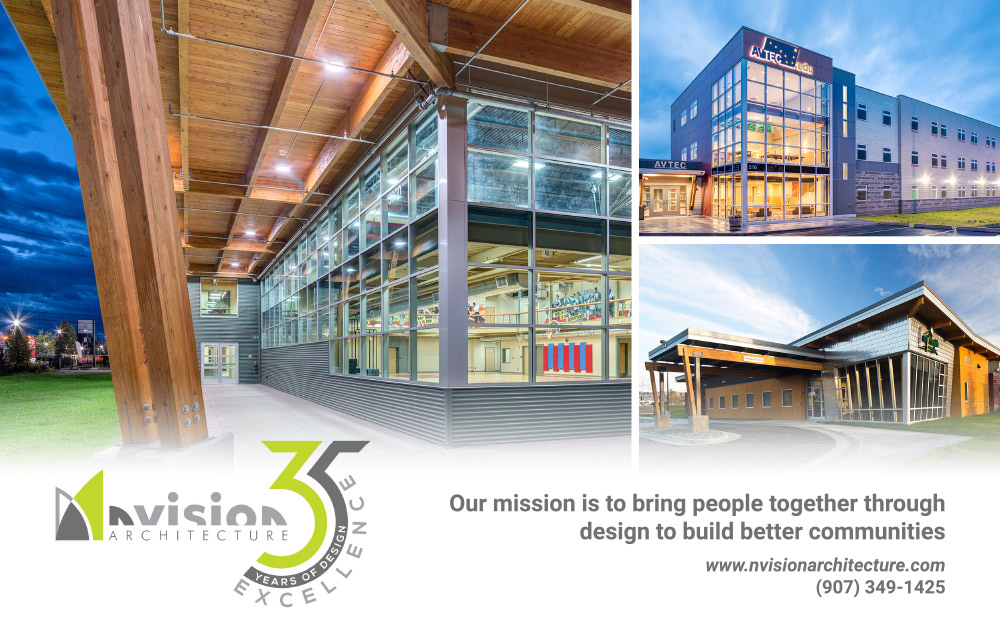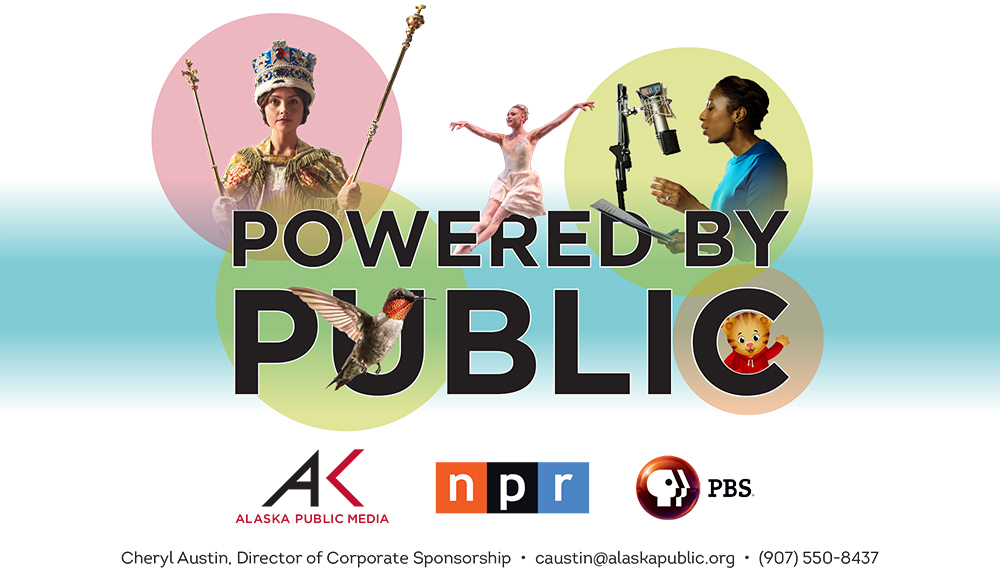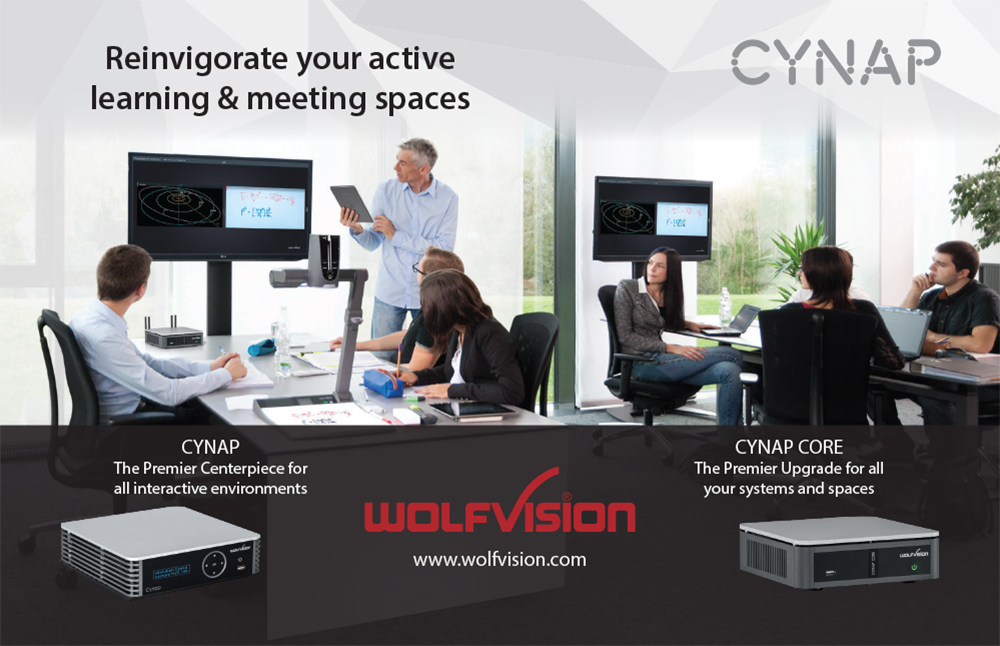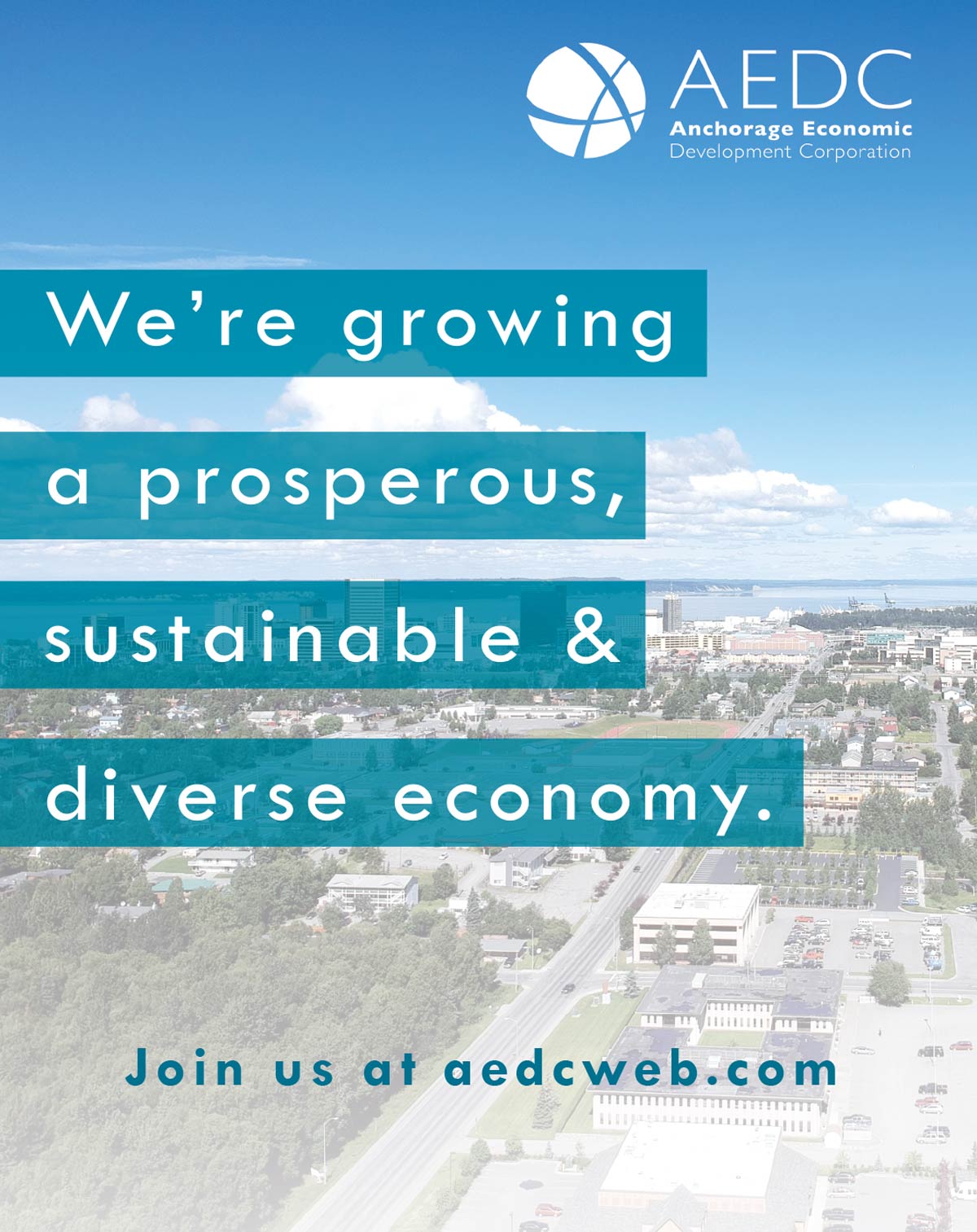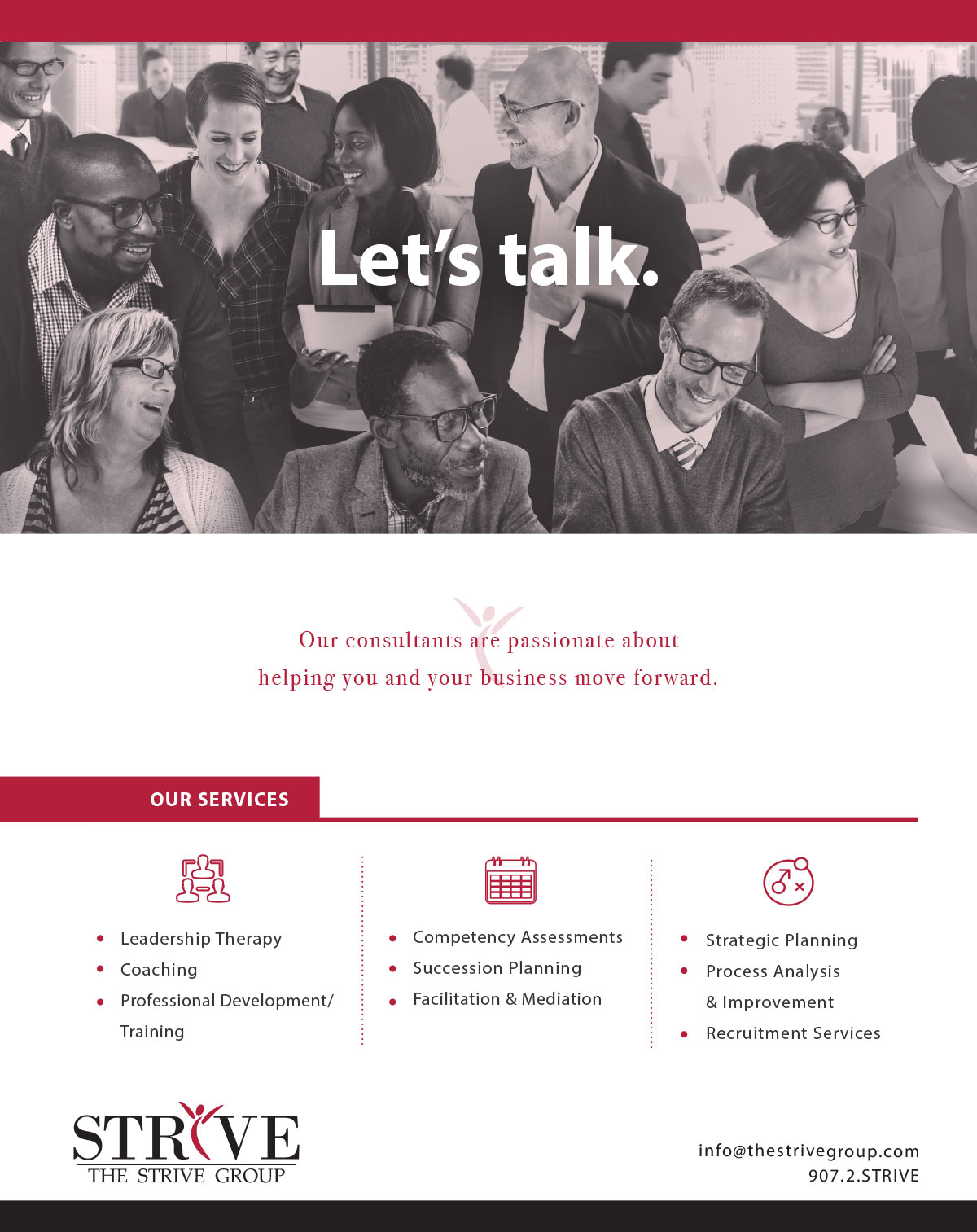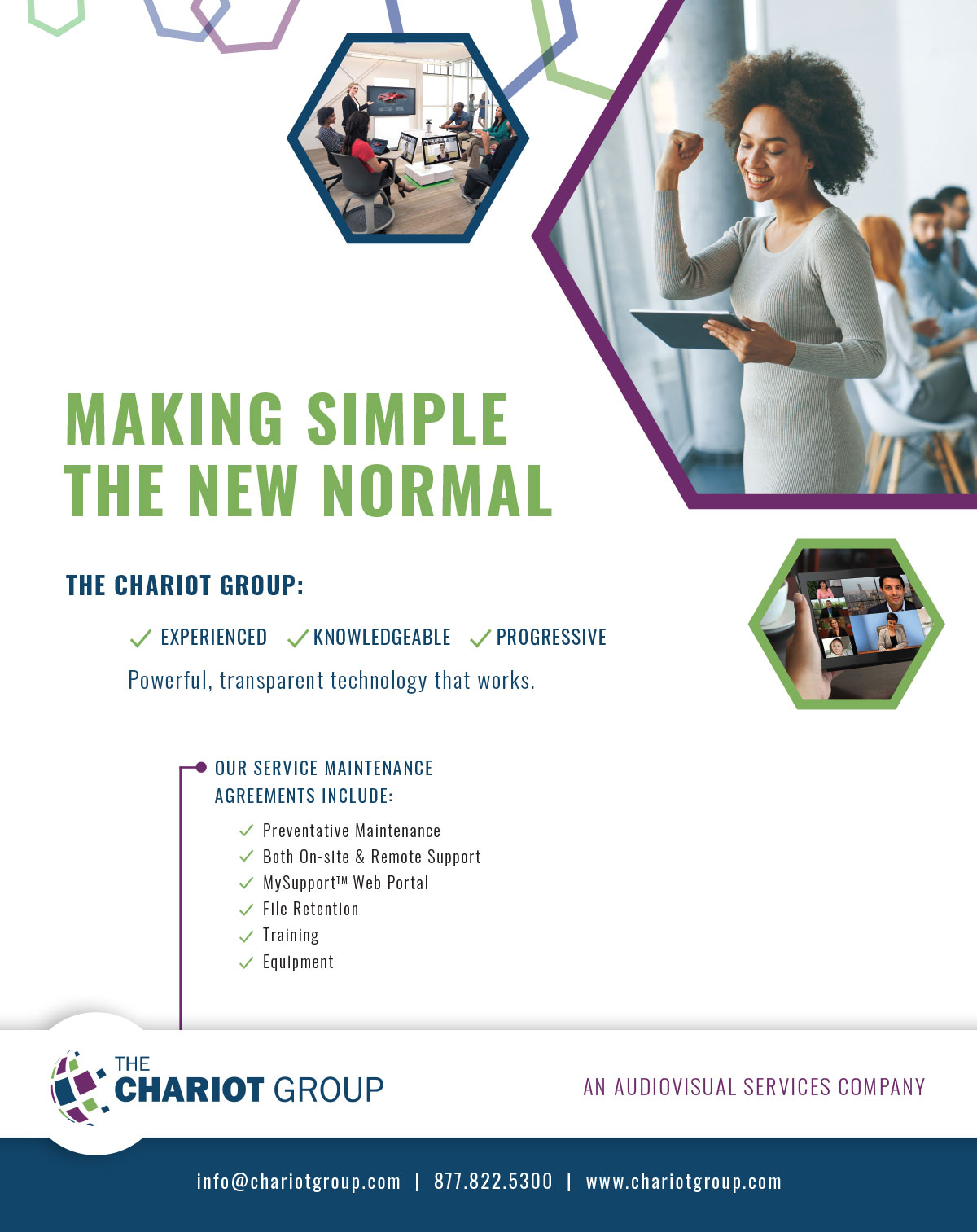
Jul-Sept 2018

Community in a Changed World
STRIVE’s content, intentionally random, showcases individuals from across the globe – their ideas, their interests, and their inspirations for innovation that, hopefully, result in positive change. However, as we assembled this issue we realized that individually developed content had organically formed a common narrative; a concern for community had materialized from contributors of different ethnicities, geographies and industries. They expressed concern for the loss of civil discourse and mutual respect, and the dire need for a renewed commitment to civility, inclusion, collaboration and social responsibility.
The topic of community has been on my mind, as well. Specifically, how advances in communication technologies have changed how we interact and communicate – how we live, work and play. Our communities are no longer defined by geography, no longer confined to a village or town. Today’s communities are infinitely more complex. Technology has expanded our reach, changing how we define and create our communities. The effect of this disruption has been both positive and negative.

OCT – DEC 2018
Editor
Nance Larsen
Cover Photo
PBS
Visualizers
Jeanette Hamje
Rejoy Armamento
Administration
Karin Norgard
Publisher
Rick Thomas
Published By
The STRIVE Group
info@thestriveproject.com
Sales
Stephanie Haydn
sales@thestriveproject.com
907.278.7483
Copyright © 2018
The Strive Group, LLC
All rights reserved.
![]()
Subscribe to the magazine:
thestriveproject.com/subscribe
Contents
By Jim Johnsen
If you are not learning, you are not leading
By Anthony D’Angelo
Reclaiming the lost art of diverse, respectful dialogue
By Michele Brown
The rapid change of the community ecosystem
By Kathleen Redmond
Progressive initiatives building economic equity
By Christine Resler
Creating an environment that fosters ideas

The unsoiled purity of the uncut fabric is symbolic of the pure soul. Here, a pure silk sari in pale pink with stylized paisley motifs in a traditional kadhua Banarasi weave. Photo by Sudhanshu Shandilya
The Ties That Bind
The Fabric of Life – Identity, Sisterhood, Honesty and Purity
By Richa Dubey
Setting up the Loom
My life has been grounded by consistent and centric themes: identity, sisterhood, honesty and purity. One of my early memories is of my mother in a crisp, starched cotton sari that would soften as the day wore on. Another is of playing peek-a-boo in her pallu, using it as a cover for an afternoon nap and even as a hand towel.
Each sari of mine has a story. How it belonged to a sister, an aunt, or a grandmother. Or how it was bought or gifted on a special occasion. And therein lies the heart of my venture, Kajri: the stories of Indian crafts and the people behind them.
You see, in India, crafts were, until recently, an everyday part of life. I remember buying handmade surahis (earthen pots) at the railway to store and cool water for the journey by train. And how colorful, handmade wooden toys were the first purchase on alighting at the Varanasi railway station. Even today, a lot of the scrumptious street food in that city is sold in donas, bowls handmade from dried leaves.
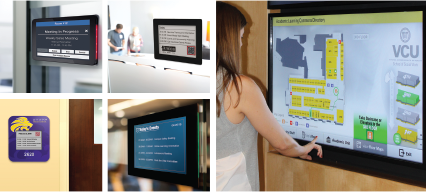
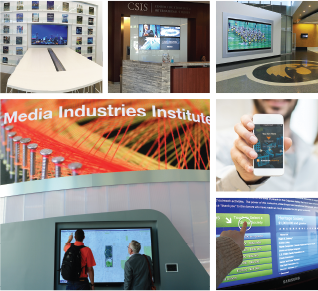
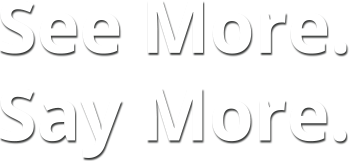
Our digital signage software, interactive designs and room booking solutions help motivate your audience, so your communications can make a difference. Engage viewers with announcements, event schedules, wayfinding and more using easy templates, widgets and data-mapping tools.
- AxisTV Signage Suite content management software is scalable, flexible and user-friendly.
- Award-winning interactive designs invite your audience to participate.
- Interactive and e-paper room signs help you manage shared spaces more efficiently.
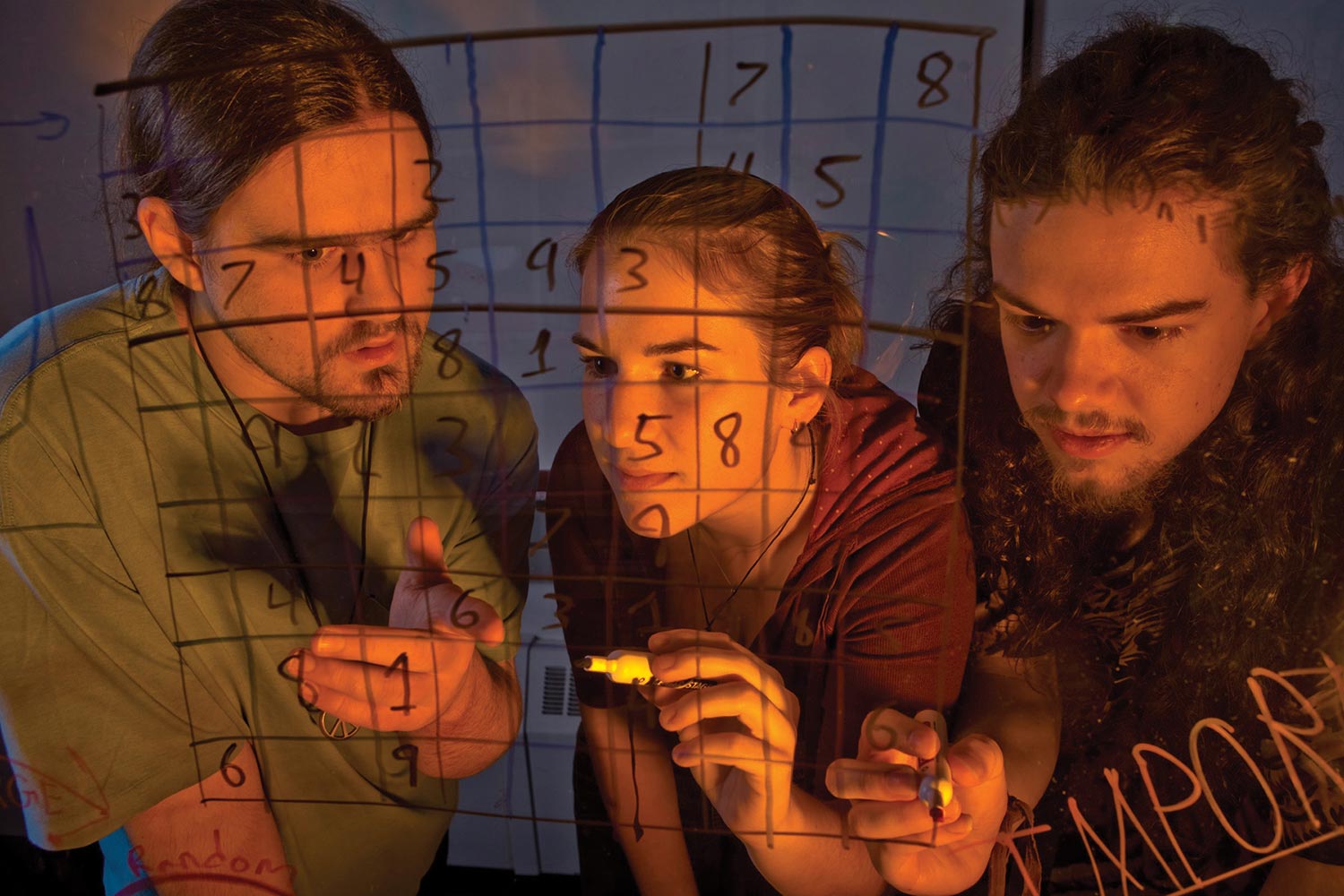
UAF undergraduates Rachel Krieg, Christopher Granade and Seth Chadwick demonstrate a Sudoku puzzle they created, which won them top honors from more than 1,000 teams participating in a worldwide applied mathematics competition. UAF photo by Todd Paris
Developing a Competitive Knowledge Economy
By Jim Johnsen
On a clear, cool late summer Fairbanks morning in 2015, I walked into my new office, the office of the President of the University of Alaska. It was not the first time I had been there, having worked for a previous president as his chief of staff and vice president. But it had been several years, years spent working outside the university in the private sector. I was excited for the opportunity to lead what I believed then – and even more now – is the single most important driver for creating Alaska’s future: the higher education of our people.
My eyes were wide open as I looked out the window, south over the Tanana Valley to Denali in the distance. Wide open because I knew that Alaska had the lowest college-going rate of any state in the country and that our economy, while increasingly diversified, had not developed enough of the elements of a “knowledge economy” essential for competitive success. I knew that the state of Alaska had been cutting the budget since 2014, that enrollment – and the tuition revenue that comes with it – had been declining since its peak in 2012, and that cost structures were high compared to other schools. I knew that the deferred maintenance backlog was estimated at $1 billion and rising as facility maintenance budgets were being cut. The three universities, along with 13 community campuses, were competing for resources, students and programs, while cutting their budgets and reducing programs, services, faculty and staff. Morale was down, and public support was down. Almost all the indicators were red.

Civility as a Professional Imperative and Advantage
By Anthony D’Angelo
I’m willing to bet that you, like me, believe we are living in a time of incivility, and find it polarizing, frustrating and exhausting. The stink of a generally nasty societal atmosphere is unfortunately obvious, but less plain is what people, including those in my profession of public relations, might do to change it.
Some of the answers lie in ethical standards and codes, such as the Public Relations Society of America’s (PRSA’s) Code of Ethics, and I believe that learning and acting on such principles is imperative for people in my profession and in yours, as well. To be ignorant of ethical standards or to act in ways counter to them, is to risk hurting your personal reputation, your profession’s, and your company’s, and it could even deepen the dysfunction we’re seeing in society. If that sounds like heavy stuff, that’s because it is.
One of PRSA’s Code of Ethics’ Provisions of Conduct is “Enhancing the [PR] Profession,” and it’s every bit as critical as such core values as honesty and fairness if my profession is to fully develop, and to build a healthier climate for the organizations and larger society we serve. The reason I think so is based on this Provision’s intent: To build respect and credibility with the public for the profession of public relations.
SUPERVISOR BOOT CAMP
Building Lifelong Leaders from the Ground Up
Supervisor Boot Camp is a 12-course series designed to give first time supervisors a solid foundation to becoming a great supervisor, benefitting individuals and their organizations.
Attend in-person or online in real-time.
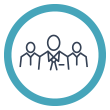 Becoming a Supervisor
Becoming a Supervisor
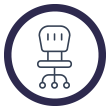 Respectful Workplace
Respectful Workplace
 Effective Communication
Effective Communication
 I’m Not a Lawyer!
I’m Not a Lawyer!
 Decision Making
Decision Making
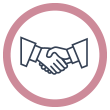 Conflict Resolution
Conflict Resolution
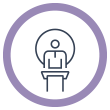 Effective Delegation
Effective Delegation
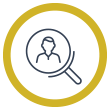 I Want You!
I Want You!
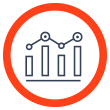 Key Performance Indicators
Key Performance Indicators
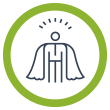 Performance Management
Performance Management
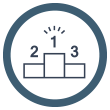 Coaching & Mentoring
Coaching & Mentoring
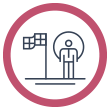 Mission, Vision and Values
Mission, Vision and Values
For course descriptions and registration, visit
thestrivegroup.com/events-supervisor-boot-camp
Contact us about additional supervisor development tools and bundling options.
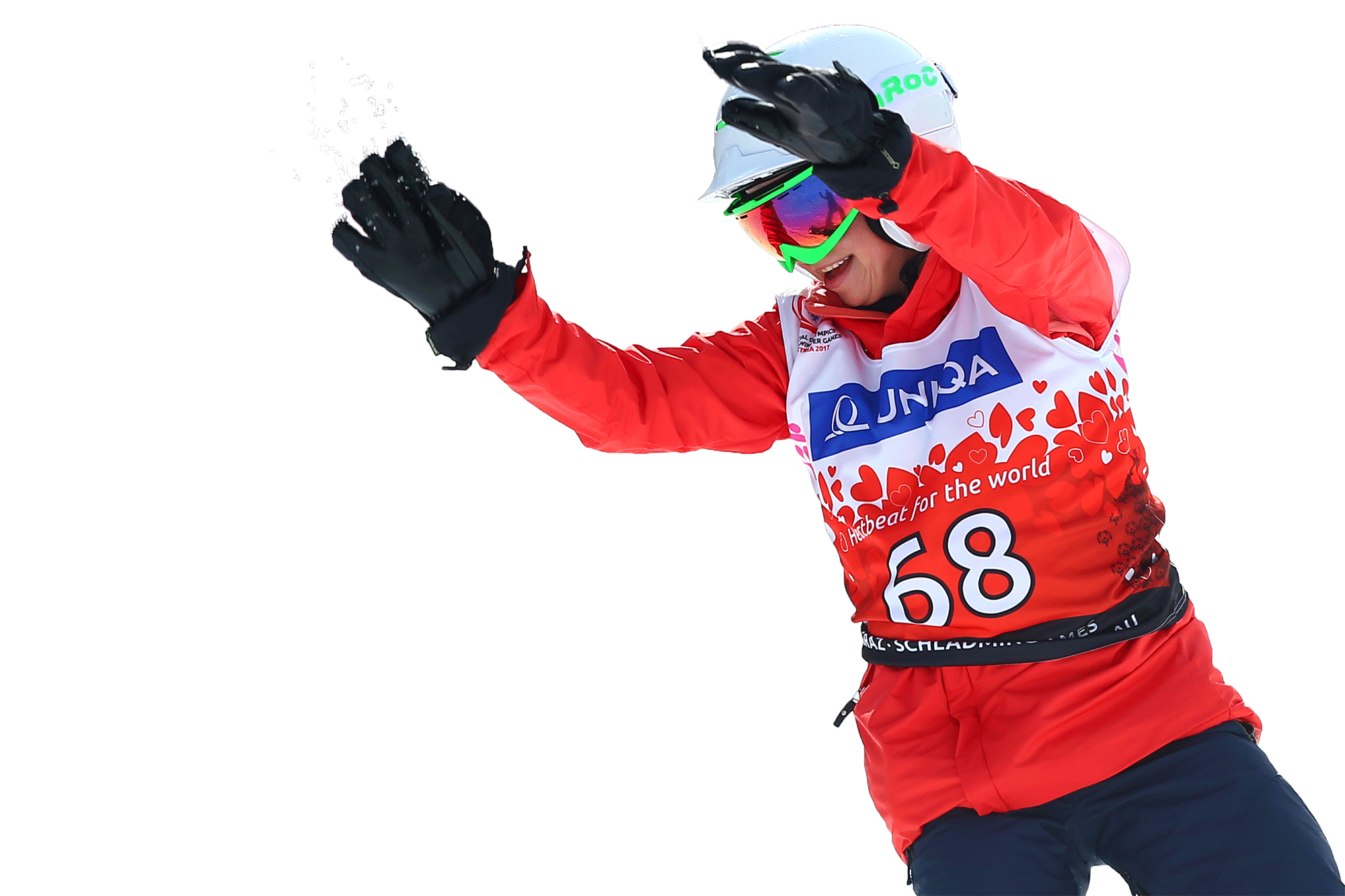
Daina Shilts slays the slopes during her gold-medal run, Schladming, Austria 2017.
Photo courtesy of Special Olympics Wisconsin.
I Am Included
By Daina Shilts

Daina Shilts slays the slopes during her gold-medal run, Schladming, Austria 2017.
Photo courtesy of Special Olympics Wisconsin.
Daina Shilts slays the slopes during
her gold-medal run, Schladming, Austria 2017.
Photo courtesy of Special Olympics Wisconsin.
I Am Included
By Daina Shilts
Imagine your world without anyone wanting or having interaction with you. Going through your daily life feeling as if people didn’t even see you – you felt invisible. Or when they did turn their attention to you, it was because they felt a need to bully you. For years, that was my world.
Let me begin by giving you a brief glimpse of myself, and sharing my labeled difference. I have a rare syndrome called CFC. I was born with some physical abnormalities, including being a bit slow in growing, being petite in size and having an Intellectual Disability (ID). I’ve had some procedures/surgeries during my life to help with the physical problems that developed, and a lifetime of working on some challenges that come because of my ID. My personality has been greatly shaped because of my ID. And, so that the last sentence doesn’t sadden you, I’ll continue with – I am happy with who I am!
When I was young I was accepted by my peers. I knew I was different from my peers because I was really small and I always had to go to separate classrooms to get help with daily basic studies like math, reading, spelling and few other things. Although it was hard to keep up with my peers, I always tried my best.
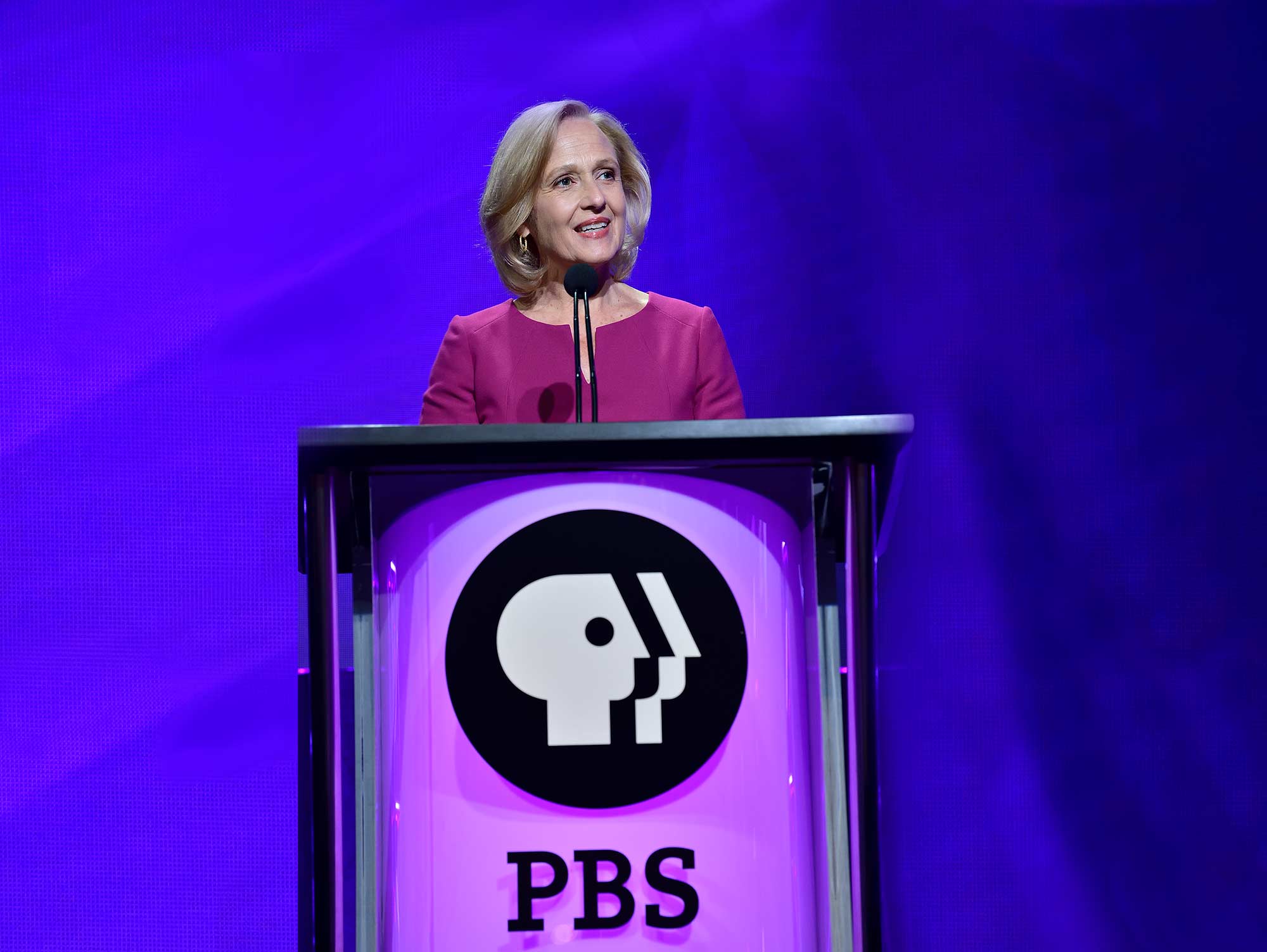
Photo courtesy of PBS
Reflections from the Road: Community Matters
By Paula Kerger
I fly a lot for my job. My travels have taken me from Juneau, Alaska, to Cookeville, Tennessee, and many places in between that lie far from an airline hub.
My life on the road is tied to the fact that the heart of public television beats through communities across America. Unlike television networks, PBS is a system of nearly 350 member stations – stations that are accountable to the citizens who live, work and raise families in the communities they serve.
One added benefit of visiting with stations is that it helps me gain insights that I can’t get from sitting in my office. As I’ve crisscrossed the country for PBS, I have observed a troubling trend. We may share the same zip code or grocery store, but for the most part, Americans are not talking to each other, and the very fabric that binds communities together is fraying.
Join a revolution already in progress. Take the inclusion
pledge at JoinTheRevolution.org.
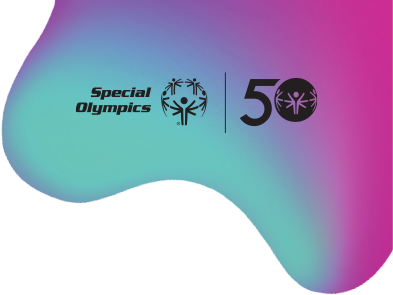






Join a revolution already in progress. Take the inclusion pledge at JoinTheRevolution.org.

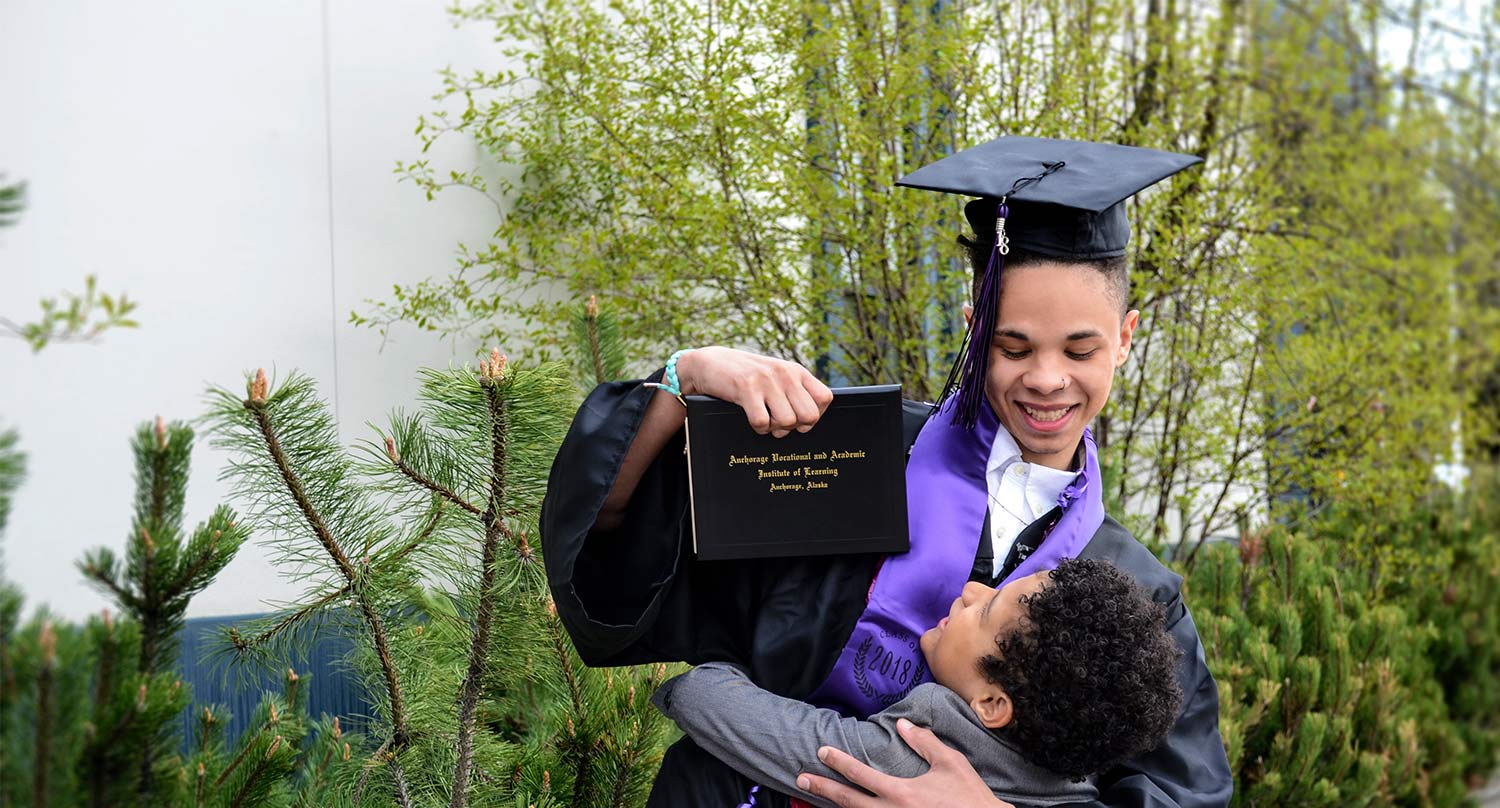
Complexity Demands Adaptive Leadership Strategies
By Michele Brown
In Anchorage, we all breathed a collective sigh of relief in August when the news media described the likely beginning of economic recovery. Job losses are slowing. Oil prices are rising. Modest job growth is on the horizon.
I’m reminded of the 1980s bumper sticker plea for one more oil boom. If we see our state revenues rise – just one more time – we promise to do things differently. We won’t blow it.
But an economic recovery alone won’t solve the social issues brought into sharp relief by the recession. As we can see from the rest of the country, a prosperous economy is not enough to reverse troubling social trends.
Those doing the hard work of moving people out of homelessness, providing treatment to overcome addictions, leveling the playing field for opportunities in education and achieving a basic level of financial security for families do not see a reprieve based solely on economic forces.

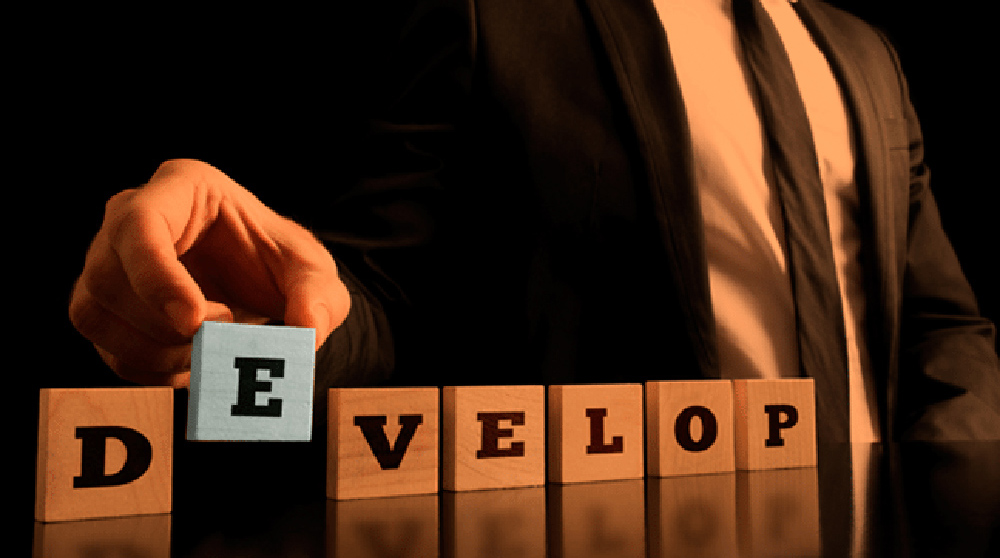
 Fix It While It isn’t Broken
Fix It While It isn’t Broken
By Archana Mishra
How many times have you heard the phrase, ‘don’t fix it when it isn’t broken’? In other words, maintain the status quo until change is the only option. However, drawing upon my life experiences, I am making a case for the opposite – fix it while it isn’t broken.
Read more…
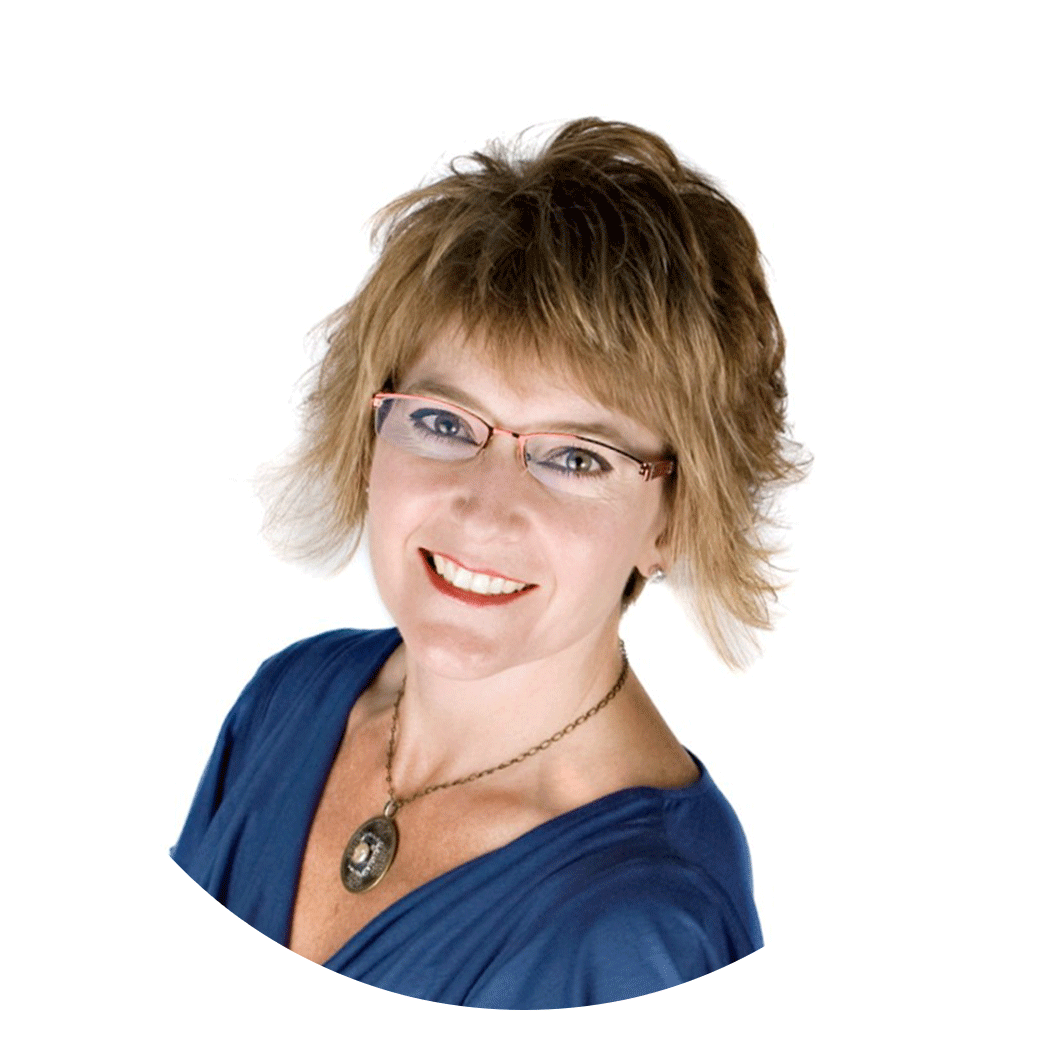 Leadership Competencies: September
Leadership Competencies: September
By Heather Kinzie
I believe in Leadership Development and I have dedicated my career to learning about leadership and helping others become great leaders. I developed a leadership competency model many moons ago and have found and kept a library of competencies accordingly.
Read more…
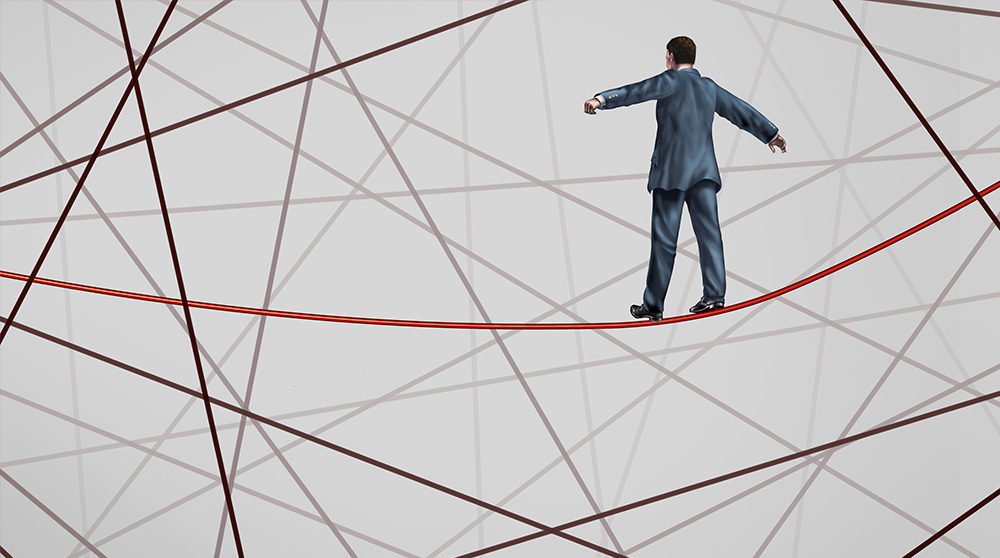
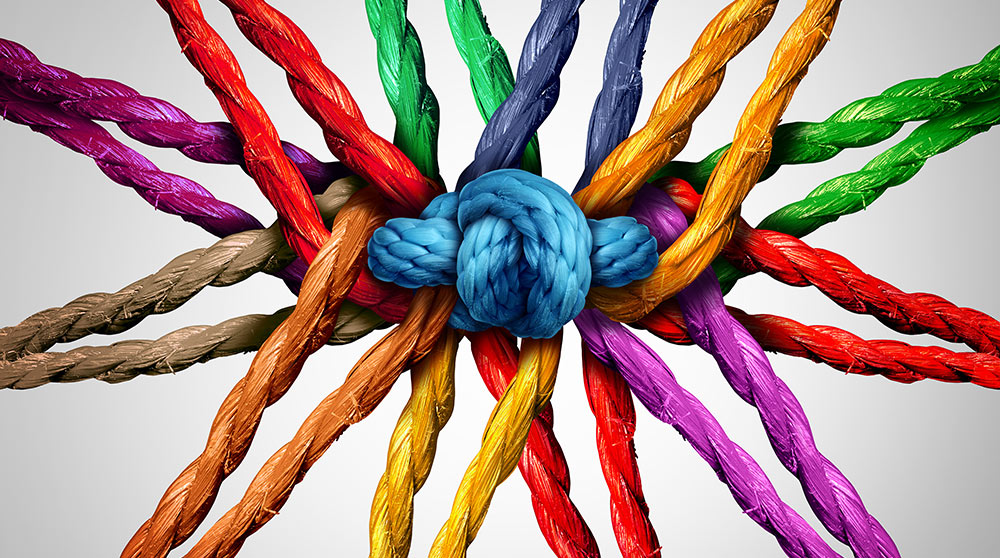
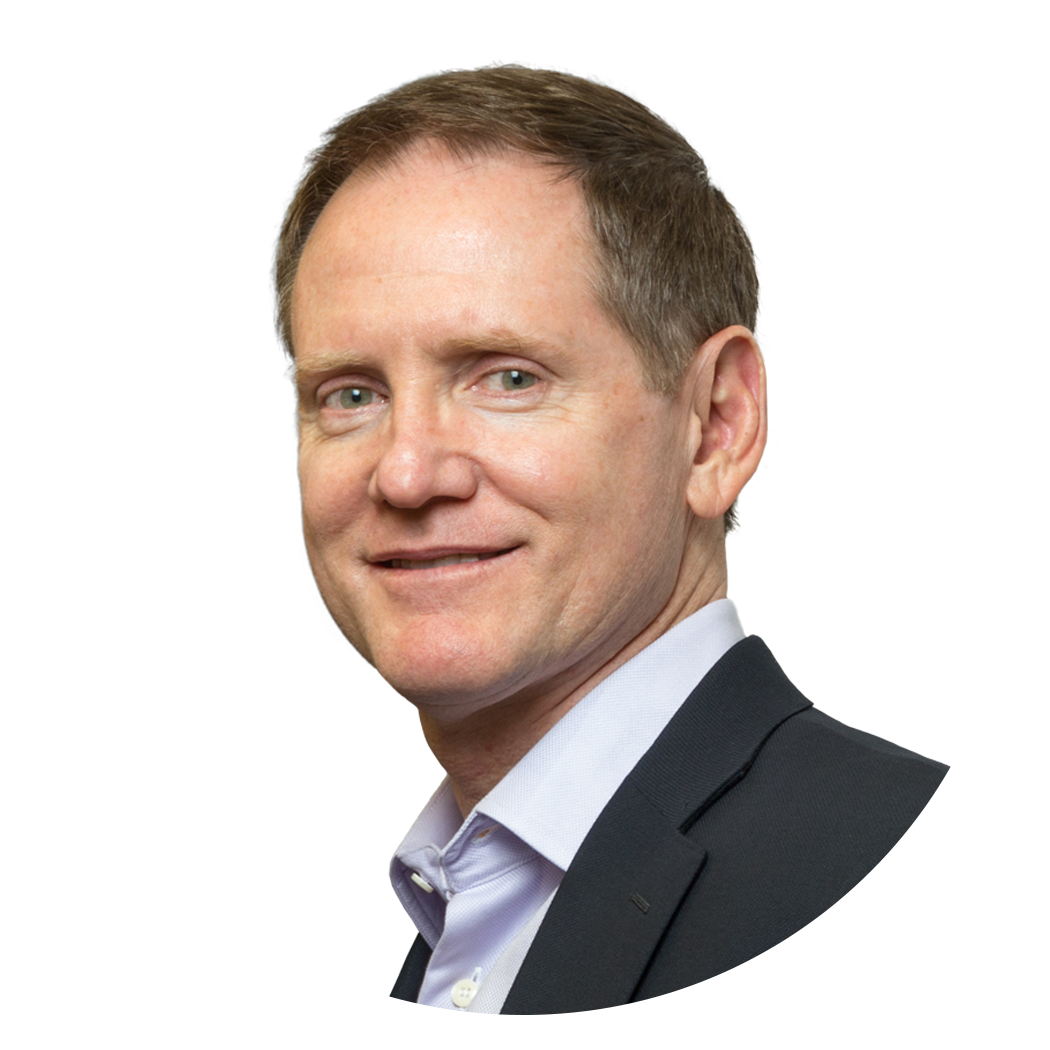 Attention’s Nemesis
Attention’s Nemesis
By Rick Thomas
Where we focus our attention determines what we accomplish, and ultimately, who we become. Attention directs our intent and concentrates our efforts. It sets our course, and therefore, determines our destination. Stated another way, where our attention goes our energy flows.
Read more…
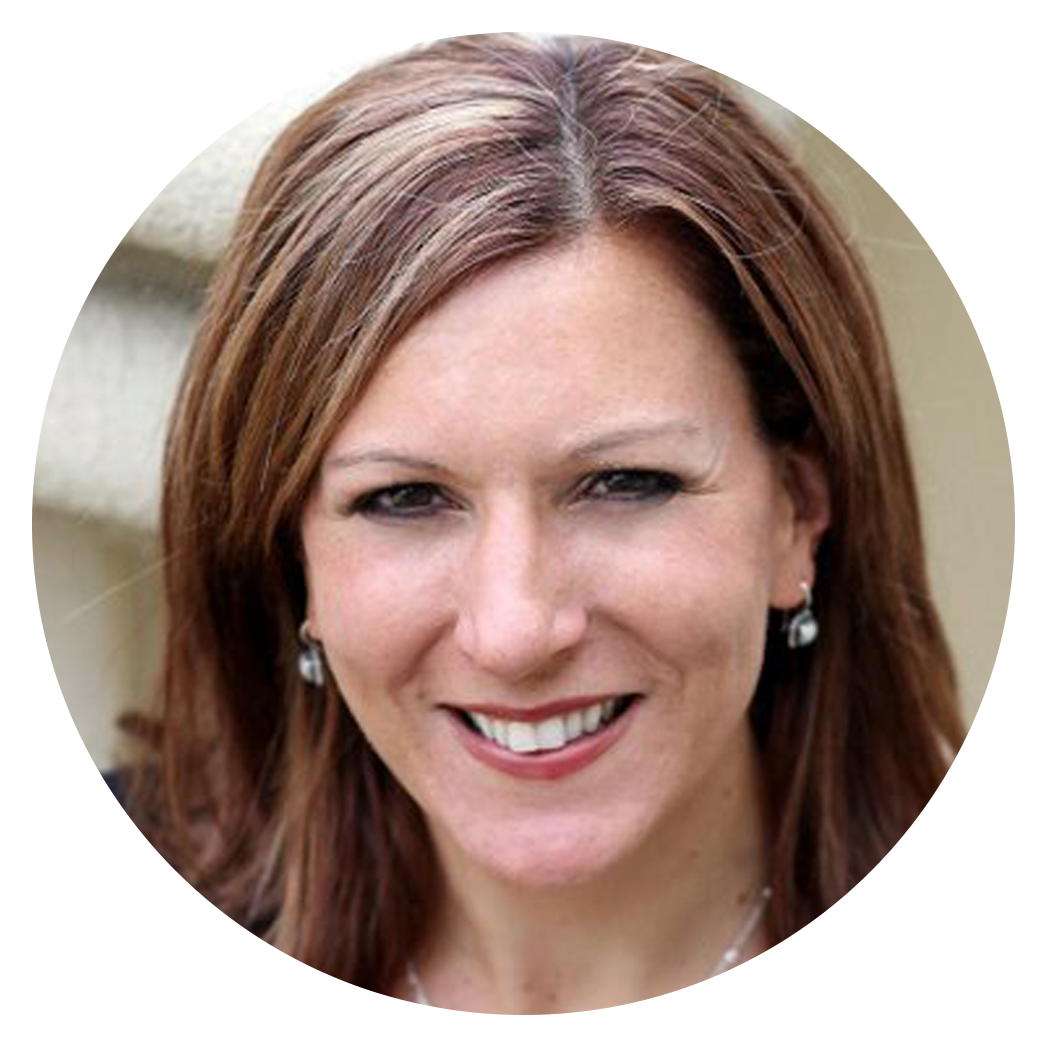 A Different Kind of Diversity
A Different Kind of Diversity
By Jennifer Payne
Diversity in the workplace. By no means a new concept, and certainly one worth our attention as HR and business professionals. Plain and simple, diversity makes our workplaces better, serving as a catalyst for different types of thinking, ways to approach problems…
Read more…



Fix It While It isn’t Broken
By Archana Mishra
How many times have you heard the phrase, ‘don’t fix it when it isn’t broken’? In other words, maintain the status quo until change is the only option. However, drawing upon my life experiences, I am making a case for the opposite – fix it while it isn’t broken.


Leadership Competencies: September
By Heather Kinzie
I believe in Leadership Development and I have dedicated my career to learning about leadership and helping others become great leaders. I developed a leadership competency model many moons ago and have found and kept a library of competencies accordingly.


Attention’s Nemesis
By Rick Thomas
Where we focus our attention determines what we accomplish, and ultimately, who we become. Attention directs our intent and concentrates our efforts. It sets our course, and therefore, determines our destination. Stated another way, where our attention goes our energy flows.


A Different Kind of Diversity
By Jennifer Payne
Diversity in the workplace. By no means a new concept, and certainly one worth our attention as HR and business professionals. Plain and simple, diversity makes our workplaces better, serving as a catalyst for different types of thinking, ways to approach problems…
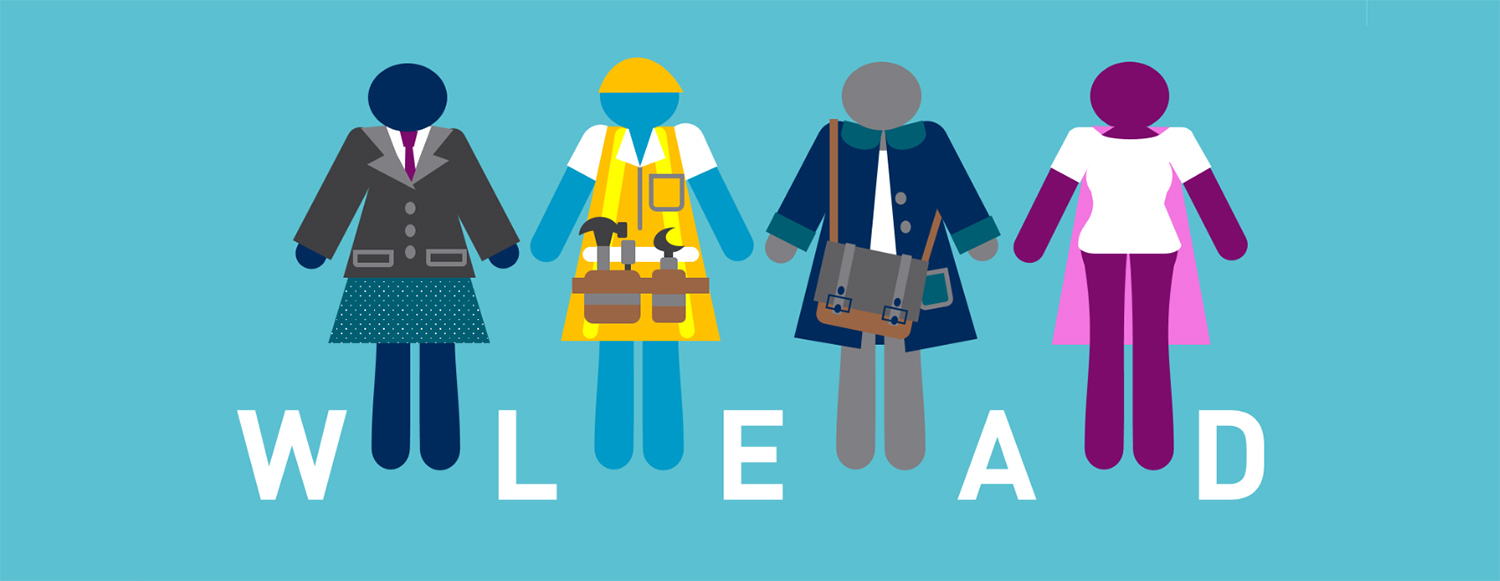
Challenge, Develop and Include for Positive Change
By Kathleen Redmond
In 2015, our CEO, Anand Vadapalli, gathered a group of 11 female leaders at Alaska Communications. He explained that he wanted to promote a new group, one that would put the concerns of women in the business community at the forefront. He challenged us to undertake the daunting task of pioneering a group of women that would delve into the work aspects of women’s lives, and how we could improve those lives at Alaska Communications.
To provide background on why Vadapalli chose to form the group, we need not look further than the 2010 Alaska Census to realize that the landscape in Alaska has changed since the 70s and 80s. The ratio of women to men increased so much that it was almost at the 50/50 mark in 2010 across the board in all working age demographics.
In addition to the Alaska numbers, when looking at numbers from particular industries you will see that telecommunications averages 16 percent women at the executive level and 13 percent at the board level. At the offset of the team, we at Alaska Communications were higher than the industry average, with 33 percent at the executive level.

Problem Solving, Barefoot Style: 5 Steps to Approach Any Problem
By Michael Houlihan
The success of the Barefoot Wine brand is living testimony to the problem-solving methods Bonnie Harvey and I employed in our early days. You can use these same methods to help overcome the problems your business faces on its journey from start-up to build-up and from build out to enterprise.
Barefoot Wine is now the world’s largest wine brand, but it had very humble beginnings. Bonnie and I started out in a laundry room in a rented farmhouse. We had no money and no knowledge of our industry. But these two apparent handicaps turned out to be the keys to our success.
Because we were underfinanced, we were forced to become resourceful. Because we were unfamiliar with our industry, we were forced to ask lots of questions.
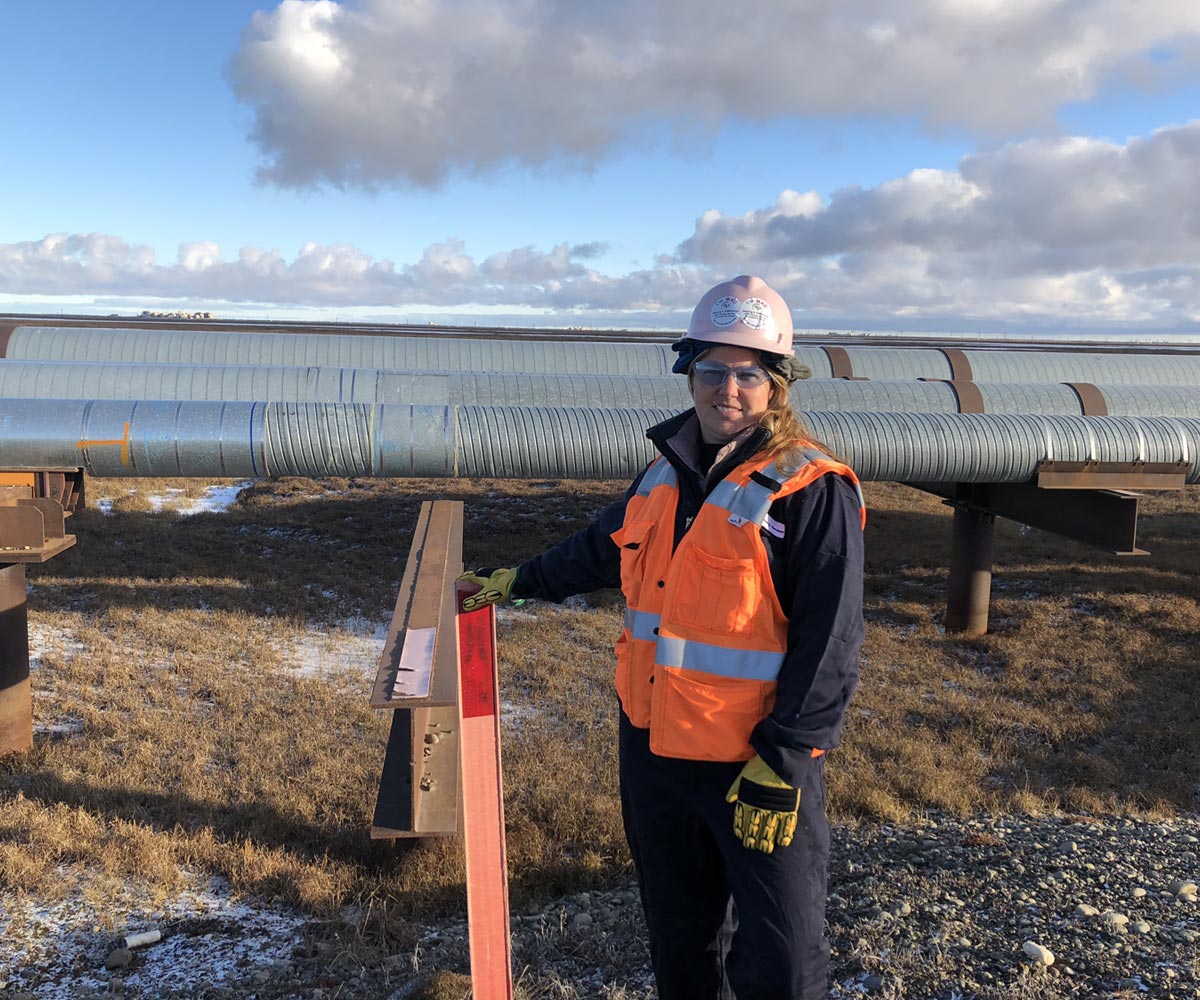
Building a Purpose-Driven Innovation Culture
By Christine Resler
Sometimes we find ourselves so immersed in the day-to-day that strategy and innovation fall by the wayside. Is the challenge truly not having enough time to innovate, or is it a lack of organizational culture and catalysts for innovation that makes it seem that way?
When You Know Something Needs to Change…
Have you ever hosted or attended a strategy planning meeting seeking a creative solution to a complex problem and felt like you were the only one talking, or that the ideas brought forward were the same solutions that aren’t working today? When this occurs, I know something has to be retooled. Either the team is missing the talent that it needs for long-term success, or the right environment isn’t in place to create innovation.
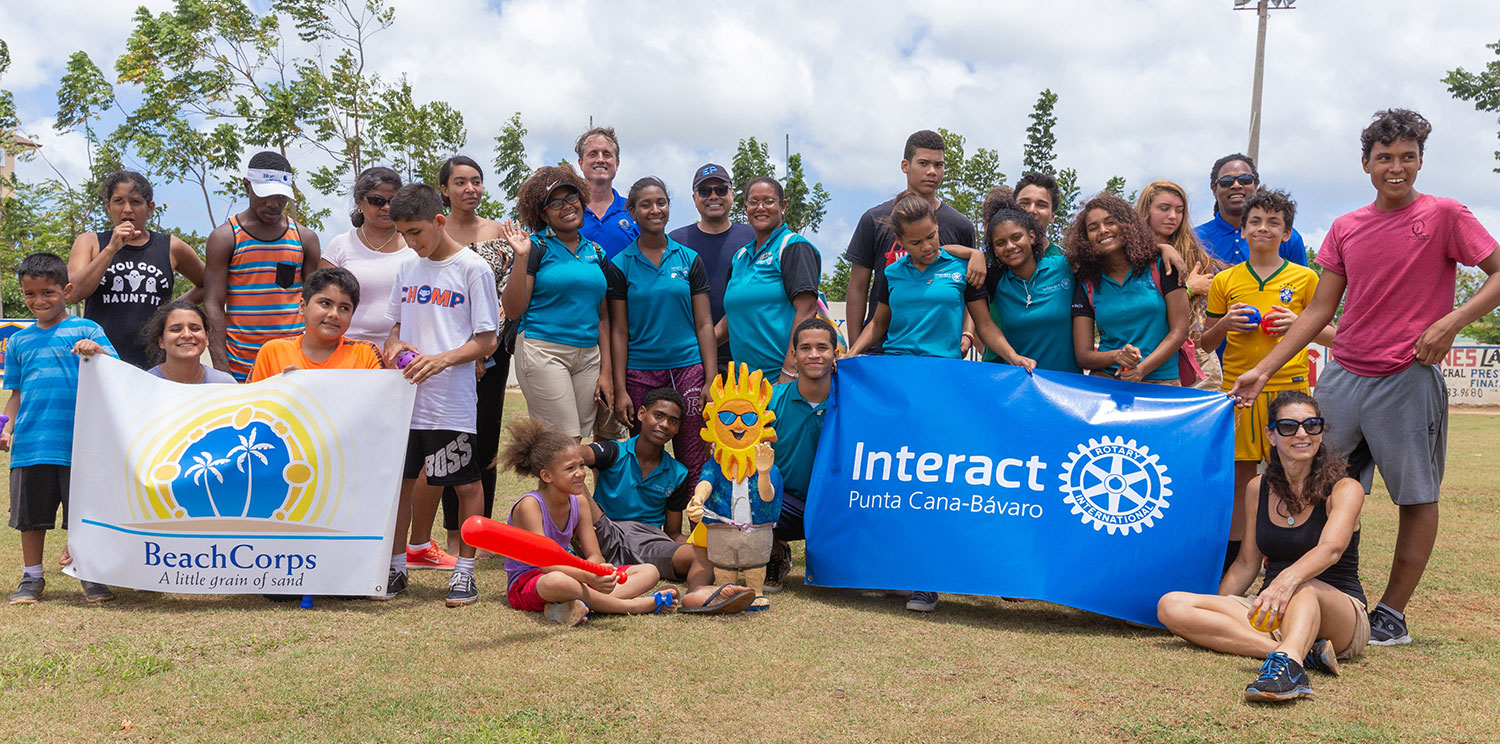
BeachCorps: Turning Sustainable Travel on Its Head
By David Searby
Sometimes familiarity blinds us to the beauty we know best. That insight led me to an improbable career shift from bureaucrat to entrepreneur.
In 2016, I retired from the United States Foreign Service after 27 wonderful years wandering the world serving my country, mostly in Latin America. In 2008, the idea bulb for my company flashed as I was being interviewed on a radio station while serving my second tour in the Dominican Republic. I had started my diplomatic career in 1989 stamping visas in Santo Domingo and years later returned to this country I loved dearly, this time as the Embassy Press Attaché.
The radio host asked me: “So what do you like about the Dominican Republic?” I began with the obvious: “Well, of course I love the lovely beaches and hotels.” The radio show in Puerto Plata was a few minutes away from world-famous “Kite Beach” of Cabarete, where windsurfers and kite surfers criss-cross the waves daily in soaring, gravity-defying lines.

Thanks for reading our Oct-Dec 2018 issue!

